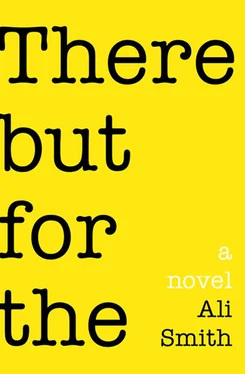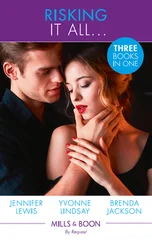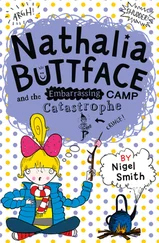It happens: the wronged queen comes back from the dead. She moves, she steps forward, she takes the hand of her husband, she turns towards her lost-and-found daughter Perdita, about to speak for the first time ever to her child, and someone’s mobile phone goes off at the front of the stalls. Beebedee beebedee bedee beep. Beebedee beebedee bedee beep. Beebedee beebedee bedee beep.
The actress playing the queen takes her daughter’s hands as if nothing had happened and continues her speech through it.
Minutes later the play ends.
Perfect timing, Mark says to the stranger on his left, the man he happens to be sitting next to, as the curtain comes down.
It was, the man says.
God, Mark says shaking his head.
But I mean it, the man says. It really was. I’ve often heard phones going off in the theatre or the cinema, but that was the best time I’ve ever heard it happen. Right at the moment when, there on stage, someone really needs to speak to someone, there it is, the same need in the audience watching it happen on stage.
Well, Mark says thinking to himself that the man he’s chosen to speak to is an idiot to need such things explained. I take your point. But.
Ah, the man says. But?
There’s a world of difference, Mark says, between Hermione and Perdita and what they’ve got to say to each other and whatever that person in the audience was going to hear in his or her ear, Hi I’m on the train, or Can you pick me up at half past five, or Can you pick up some cat-litter or Nurofen or whatever.
Reason not the need, the man says. Need not the reason. We don’t know. We simply don’t know. All we know is — someone wanted to speak to someone else. That’s more than enough. Doesn’t matter how quotidian it is, it’s still all we have at the end of the day.
He says all this mildly.
He says the word quotidian with no self-consciousness.
The way he says the phrase at the end of the day somehow makes it not a cliché, makes it mean that days end and that it might matter that they do.
You don’t think it ruined it? Mark says.
I think it made it better, the man says.
Astonishing, Mark says.
Yes, the man says. The play can still astonish, even though we think we know it, no matter whether we’re seventeenth century or twenty-first. And I always feel a bit sorry for the daughter, who never gets to speak back. What’s that last thing she says, when she believes the statue’s still a piece of art and not her mother at all? She’s happy to be a bystander, a looker-on, and she’ll gladly be exactly that, for twenty long years, she says, if she can just stand there for each of those years and appreciate this semblance, this combination of stone and paint that resembles the mother she never knew. Then, suddenly, from nowhere, it’s not a statue at all, it’s real, it’s her real mother, miraculous, alive, right there in front of her. And then the play’s over, and we never get to hear what she thinks.
So that phone going off, Mark says. Perdita phoning Hermione.
Another way to see it, the man says.
Mark laughs. The man is delightful. By now they’ve moved with the crush of the crowd out of the dark into the light and the foyer. They go out through the same exit. They stand for a moment in the surprising warm of the evening. It is lovely. It is summer. The man, Mark notices, is wearing a very nice dark linen suit and an expensive-looking shirt. He smells nice; Mark realizes that this man’s aftershave has kept him company through all the madness and all the seasons all the way to the reconciliation.
He turns to Mark, almost as if he is going to bow. He smiles. This is him saying goodbye. Off he goes. His back is a proof of his completeness. He disappears in among the meaningless backs and fronts of other people.
Mark stands in the sun for a moment and into his head comes the moment in the play where the mad king asks the Delphic oracle for the truth, and the feather pen stands up on the table with no one holding it, by stage-trickery, by magic, and begins to write by itself.
Then he runs and catches the man up at the pedestrian crossing. He is out of breath from the short run. He asks the man, between breaths, if he’d like to go for a drink.
Why not? the man says.
He holds his hand out.
Miles, he says.
Mark, Mark says.
They shake hands.)
The Observatory was behind and above Mark now. He turned and looked at it and loud as day, loud as Faye but why would someone choose to disappear / and why would someone choose to do it here?
Here was where, not that long ago, men who didn’t yet know the half of it sat in a freezing shed with the roof open to the sky all night, night after night, charting the light given off by stars — stars that were maybe already dead. Here was all about the visible-invisible borders, the thin lines between here and gone, then and now, here and there, random and meant, big and small. Infinite riches, little room. Here all the clockmakers in history had been confounded, until one of them finally clocked it — ha! — and found that the solution to keeping time when you were at sea lay in the very smallness of things, that a tiny watch mechanism was better than a thirteen-foot-high pendulum in the middle of the ocean any day.
He waited for a comment to come from Faye, something about size mattering.
Nothing.
Silence.
He imagined Faye locked in a little room. Imagine trying to contain an erupting volcano in a bedsit. Imagine that Icelandic singer, what was her name, Björk — but squashed inside one of your average kitchen units. The force would be explosive.
The force had been explosive.
For all the years you’ve lived, for all that jizz, Faye said cocky in his ear, you’ve no idea what real explosion is, have you, old man?
Finished with the rhyming, then, Faye? he said.
I’ll rhyme when I like, she said. And scan.
(Well, it’s for fun, mainly, the man called Terence tells the child. But it’s for serious too. It’s a very clever thing.
Are you lecturing me, by the way, would you say? the child says.
You asked, the man says laughing. I’m answering.
The child is his daughter. She’s just asked what the point of rhyme is. They’re all standing round the table looking to see which little folded piece of cardboard says whose name. In the place where Miles is supposed to sit the card says the words Mark’s Partner.
Hugo picks it up and looks at it, looks at Mark, raises his eyebrows, puts it down.
There is wine already poured in glasses at each of the set places. Mark panics. White wine gives him terrible migraine and there’s nothing on the table but white. There are five bottles of red, opened, full, over there on the sideboard. But the bottles have an untouchable air. And he doesn’t want to ask; already there’s been a fuss about drinks because Miles is driving and has refused to drink. We can organize you a taxi, the woman whose house it is, Jan, keeps repeating. No, really, Miles keeps saying, I’d prefer not to.
Terence and Bernice Bayoude; these are the names of the child’s mother and father. Mark says the names over to himself a couple of times. There is no name card on the table for the child; the child wasn’t expected. The people who are giving the dinner party are pretending that there’s no problem about her being here but being arch and polite about setting her a place and finding a seat the right height for her.
Milton calls rhyme a troublesome modern bondage, Bernice says.
Gosh, aren’t you clever? Jan says.
What’s that about bondage? the reedy-looking man who came with the blonde woman says.
Preface to Paradise Lost, Bernice says. He calls rhyme the invention of a barbarous age.
Читать дальше












